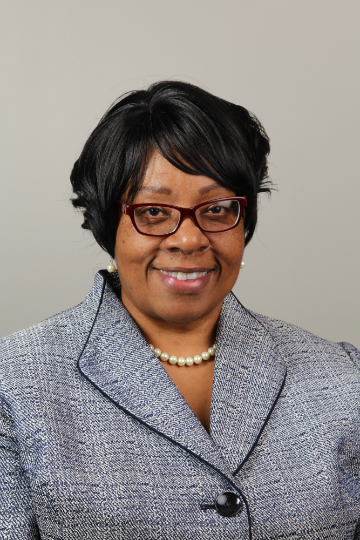
Photograph courtesy of Michael Schwarz
It’s rare enough when an Atlanta City Council candidate rates a mention in her own hometown newspaper, so it’s doubly unusual that Liliana Bakhtiari—who’s running to unseat longtime District 5 incumbent Natalyn Archibong—has garnered national press from such outlets as Teen Vogue and the Huffington Post.
No doubt the attention has come in part because Bakhtiari, 29, isn’t your standard political hopeful. A Muslim daughter of Iranian immigrants who identifies as queer, she is in many ways a model of the civically active millennial. As an anthropology student at Georgia State University, she and some classmates created a nonprofit to raise money for Cambodian refugees. After graduation, she traveled to Southeast Asia, gathering stories from survivors of genocide and sex trafficking in countries like Thailand and Vietnam. Her travels took her as far as Africa and Australia before returning to Atlanta, where she resumed working with refugees, as well as becoming active in homeless outreach, local arts advocacy, and women’s health programs. When she’s not engaged in activism, her day job is working as a consultant on social media management and photography for start-ups and small businesses—on a sliding scale, she stresses. Plus, in 2011, her father bought the last Victorian house on Peachtree Street, near Emory University Hospital Midtown, which Bakhtiari has been gradually renovating into a space for nonprofits.
Not surprisingly, much of the coverage of Bakhtiari has focused on her backstory, celebrating the diversity she represents. “Meet the candidate who might be the first LGBTQ+ Muslim councilwoman in Atlanta,” reads one headline from feminist media outlet NowThisHer, while the HuffPost story addresses “Here’s what happens when a brown, queer woman runs for office in the South.” (Spoiler alert: The article doesn’t really deliver on its teasing headline; it’s mainly a Q&A about what she hopes to achieve.)
Bakhtiari’s strength as a candidate might appear to rest mostly on her demographic bona fides were it not for the fact that she has mounted a formidable campaign, matching Archibong nearly dollar-for-dollar in campaign contributions (as of the last reporting period) and pulling together an enthusiastic group of volunteers. Bakhtiari herself has spent countless hours going door to door to introduce herself to voters in the city’s easternmost district, which stretches from Peachtree Center to East Lake.
If she wins, Bakhtiari would be part of the most substantial political turnover in City Hall in 16 years, with seven of 15 council seats guaranteed to change hands (not including the president’s post, which will also have a new occupant) and six other incumbents facing opposition. But what was it that drove someone with no political background to enter the fray?
Bakhtiari points out that she grew up working in her father’s pharmacy on Auburn Avenue, often delivering prescriptions to elderly customers. She’s been active in local and regional causes, serving on the board of Lost N Found Youth, which assists homeless gay teens. In recent years, she’s seen longtime Old Fourth Ward residents priced out of their homes by rising property values and tax bills. The same thing is now happening in the Reynoldstown and Edgewood neighborhoods, she says, because the current elected leadership is more interested in attracting newcomers to Atlanta than it is in looking after those already here.
“I want to ensure that as the city grows, existing residents have a seat at the table, especially older people,” she says. “If your income is frozen, your property taxes should be as well. I want to make Atlanta a city that loves its residents back.”
Bakhtiari also would like to create incentives for developers to build affordable housing for first responders, teachers, and other essential workers now forced to make long commutes because of the rising cost of urban living.
She aims to lower attrition in the police department by increasing salaries and wants to have a role in deciding how to spend the city transportation tax windfall to increase walkability and build more sidewalks.
Besides having the chance to bring more diversity to the council chamber—she would be the first woman of Middle Eastern descent—another reason Bakhtiari is running is to replace a four-term councilwoman whom she believes has grown complacent and out of touch.
“A lot of people I talk to say they haven’t seen the incumbent in a while,” she says. “This is really an exciting time in Atlanta, when District 5—which has large immigrant and queer populations—has the ability to set the pace for what the rest of the city could look like.”

Courtesy Atlanta City Council
Archibong’s campaign website shows her with gay supporters and touts her efforts in having “supported a vibrant and welcoming environment for all orientations, genders, races, ethnic groups, and businesses.” She claims Bahktiari is running an “identity politics” campaign, and says when she first ran for office in 2001, she pushed back against opponents that said the district wasn’t hospitable to gays or white people. The fact that District 5 has become such a landing pad for LGBTQ people and people of different races is “really an affirmation of my leadership,” Archibong says. She says her opponent is unproven and talks about the district’s issues but doesn’t offer solutions, meanwhile the councilwoman has been delivering results.
“It’s one thing to talk about something,” Archibong says. “It’s another to see it actually delivered. Talk is cheap, action is hard; and I do the hard work every day.”
And the councilwoman is no lightweight. Before serving four terms on the Council, she rose up through the ranks of the neighborhood activism circuit in East Atlanta, building ties with longtime civic leaders.
Most of her legislative accomplishments focus on district-level efforts—securing land for the Kirkwood Urban Forest and funding for fire stations, plus a big-picture look at ways to turn Memorial Drive into less of an intown highway. She also credits herself with having “established the Edgewood Retail District that employs more than 1,600 people and generates $10.1 million in sales tax revenue,” although the shopping center was developed by the Sembler Co.—more accurately, she represented the community’s wishes as a councilwoman during the process.
The power of incumbency alone makes Archibong a formidable opponent, but the energy behind Bakhtiari’s campaign shouldn’t be ignored either. As with nearly all council races, no public polls have been released showing where the contest stands, but the Bakhtiari campaign recently suffered what could be a small setback in the form of a “not qualified” rating from the Committee for a Better Atlanta, a coalition of members of Atlanta’s business community that interviews the candidates. Archibong, by contrast, received a rating of “excellent,” but the group provides no details as to how it arrives at its ratings. But it’s possible that the CBE’s blessing isn’t needed; mayoral front-runner Mary Norwood didn’t even respond to the group’s questionnaire.
“My focus is on affordable housing, transit, and in workforce development, and perhaps that didn’t fit with their corporate agenda.” Bakhtiari says, “But I believe my plan to invest in helping city residents will end up bringing economic growth.”
Additional reporting by Thomas Wheatley








![The North Carolina Museum of Natural Sciences’ newest exhibit is a [pre]historic first](https://cdn2.atlantamagazine.com/wp-content/uploads/sites/4/2024/04/DD-3-100x70.jpg)




